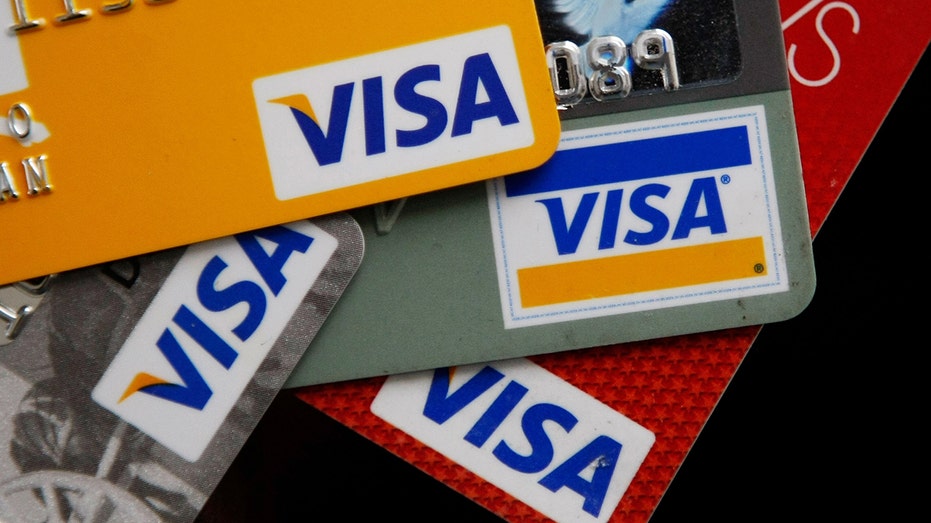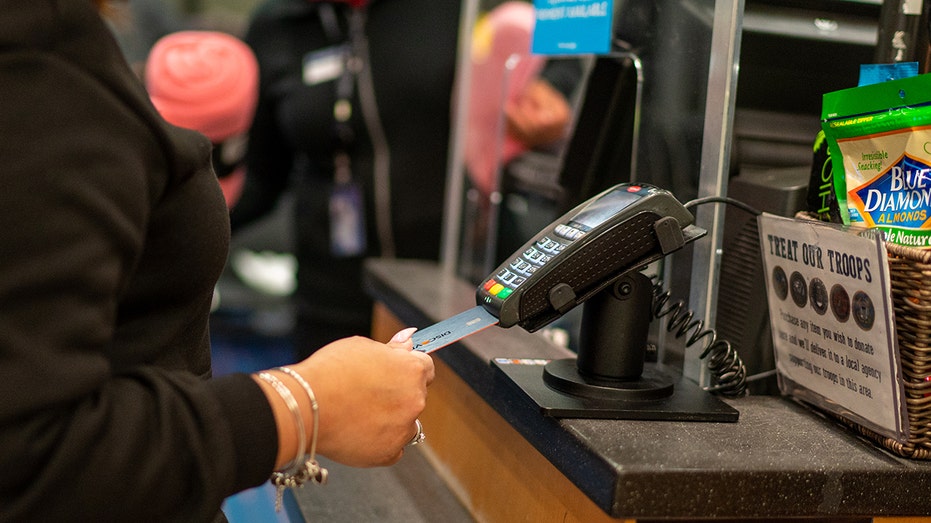More Americans racking up credit card debt as inflation rages
Inflation forcing more Americans to pile up credit card debt
NerdWallet CEO reveals the best credit cards for ‘trimming costs’ amid record inflation
NerdWallet founder and CEO Tim Chen provides economic analysis of the best credit cards available, breaking down the benefits and drawbacks of each on ‘Mornings with Maria.’
Credit card debt in the U.S. surged over the past year as painfully high inflation prompted more Americans to borrow money in order to keep spending.
A new report from CreditCards.com shows that 60% of credit card holders have been carrying balances on their card for at least a year – a marked increase from 2021, when that rate was at just 10%.
"Credit card debt is easy to get into and hard to get out of," said Ted Rossman, a senior analyst at CreditCards.com. "High inflation and rising interest rates are making it even harder to break free."
The debt burden is disproportionately borne by lower-income Americans: The report shows that 59% of individuals who earn less than $50,000 a year carry a credit card balance from month to month. That compares to 49% of those who earn between $50,000 and $80,000 and 46% for those earning between $80,000 and $1,000 a year.
INFLATION ROSE FASTER THAN EXPECTED IN AUGUST, KEEPING PRICES PAINFULLY HIGH

Visa credit cards are arranged on a desk. (Justin Sullivan/Getty Images) (Justin Sullivan/Getty Images / Getty Images)
The numbers come against the backdrop of stubbornly high inflation that has shown little sign of cooling off: New data released last week by the Labor Department showed the consumer price index unexpectedly climbed 0.1% in August, dashing hopes for an inflation slowdown. On an annual basis, inflation soared 8.3%, hovering near the fastest pace since 1981.
Americans owed a stunning $887 billion in credit card debt as of June 2022, according to recent data from the Federal Reserve Bank of New York. That was an increase of about 5.5% from the first quarter of the year, and a 13% increase from the year-ago period.
"Americans are borrowing more, but a big part of the increased borrowing is attributable to higher prices," researchers for the New York Fed said in a news release.
BANK OF AMERICA WARNS OF NEW LOWS FOR S&P 500 AS 'INFLATION SHOCK AIN'T OVER'
Still, despite the heavier use of credit cards and debt, the New York Fed noted that delinquency rates remain relatively low. The total outstanding credit card debt rose to $890 billion in the second quarter of the year, a $100 billion increase from the same month one year ago.
However, the CreditCards.com report showed that many Americans are at risk of being unable to pay off their cards should they lose their jobs.

NEW YORK, NY - JANUARY 28: An air traveler uses a credit card to pay for items January 28, 2022 at a retail shop in John F. Kennedy International Airport in New York City. (Photo by Robert Nickelsberg/Getty Images) ((Photo by Robert Nickelsberg/Getty Images) / Getty Images)
About 45% of all cardholders, and 53% of cardholders carrying debt, said that losing their job would have a "major impact" on their ability to make at least minimum credit card payments over the next year.
With the Federal Reserve raising interest rates at the fastest pace in decades – policymakers already approved four consecutive hikes, including two jumbo-sized ones – there is a growing fear on Wall Street of an impending recession. Most economists expect unemployment to rise in conjunction with the benchmark interest rate.
CLICK HERE TO READ MORE ON FOX BUSINESS
Hiking interest rates tends to create higher rates on consumer and business loans, which slows the economy by forcing employers to cut back on spending.
Mortgage rates have nearly doubled from one year ago to more than 6%, while some credit card issuers have ratcheted up their rates to 20%





















